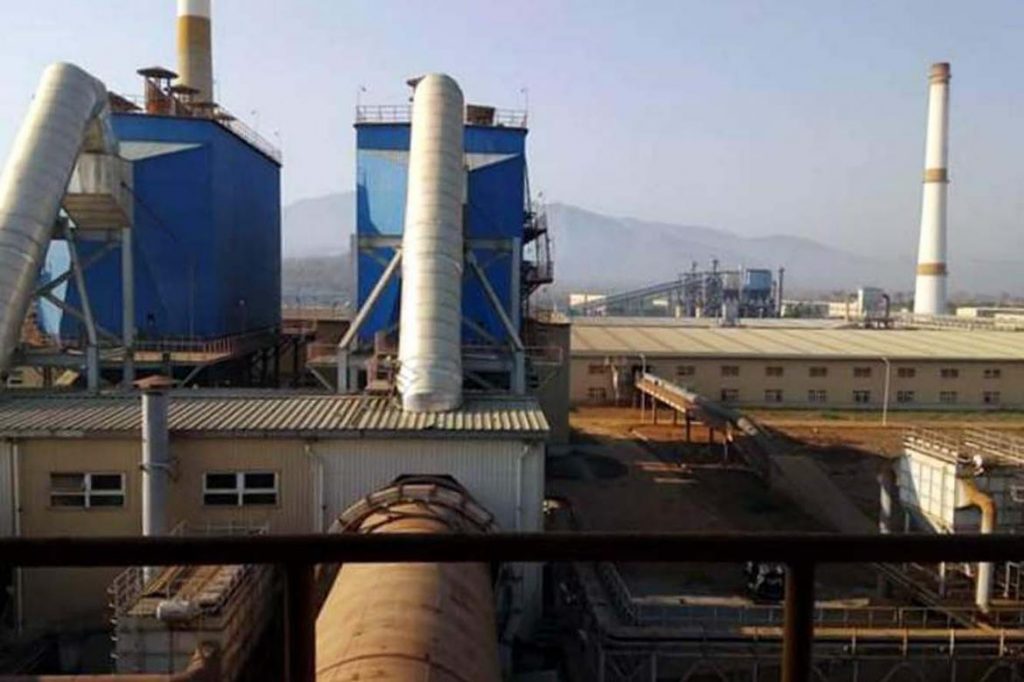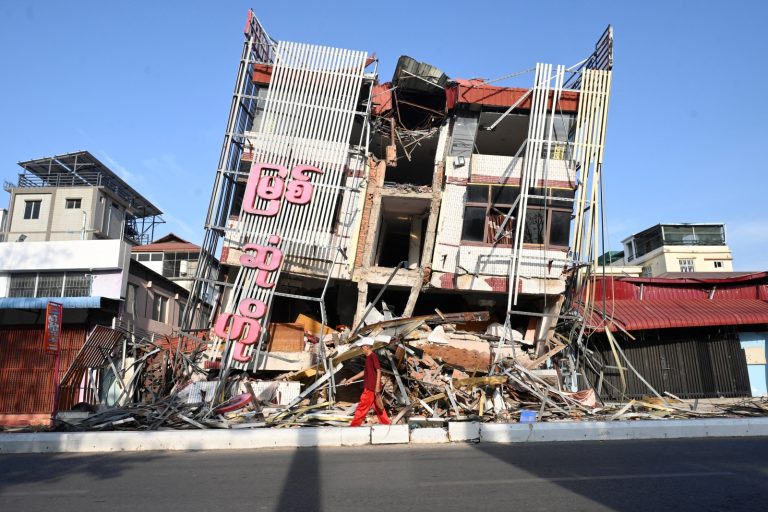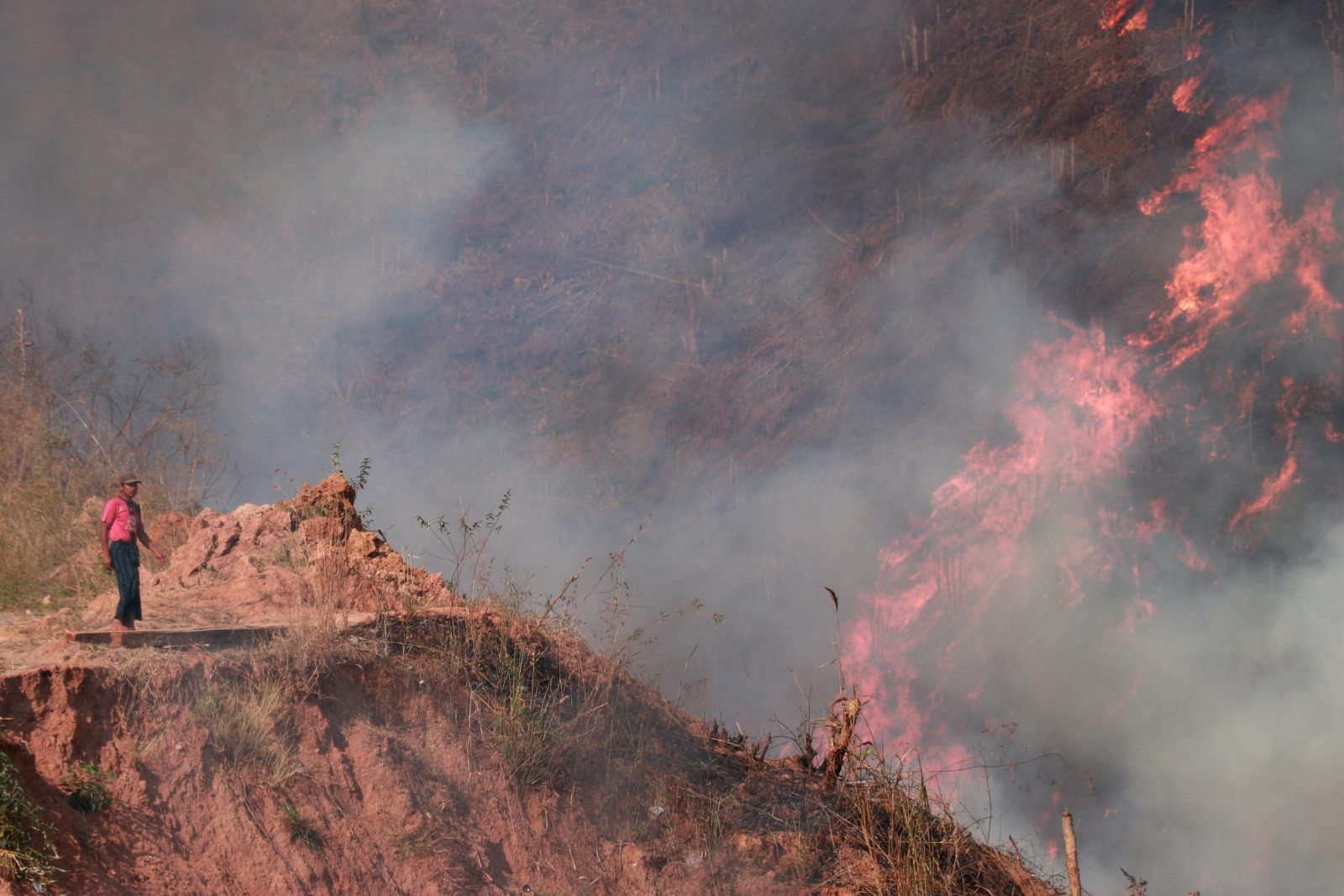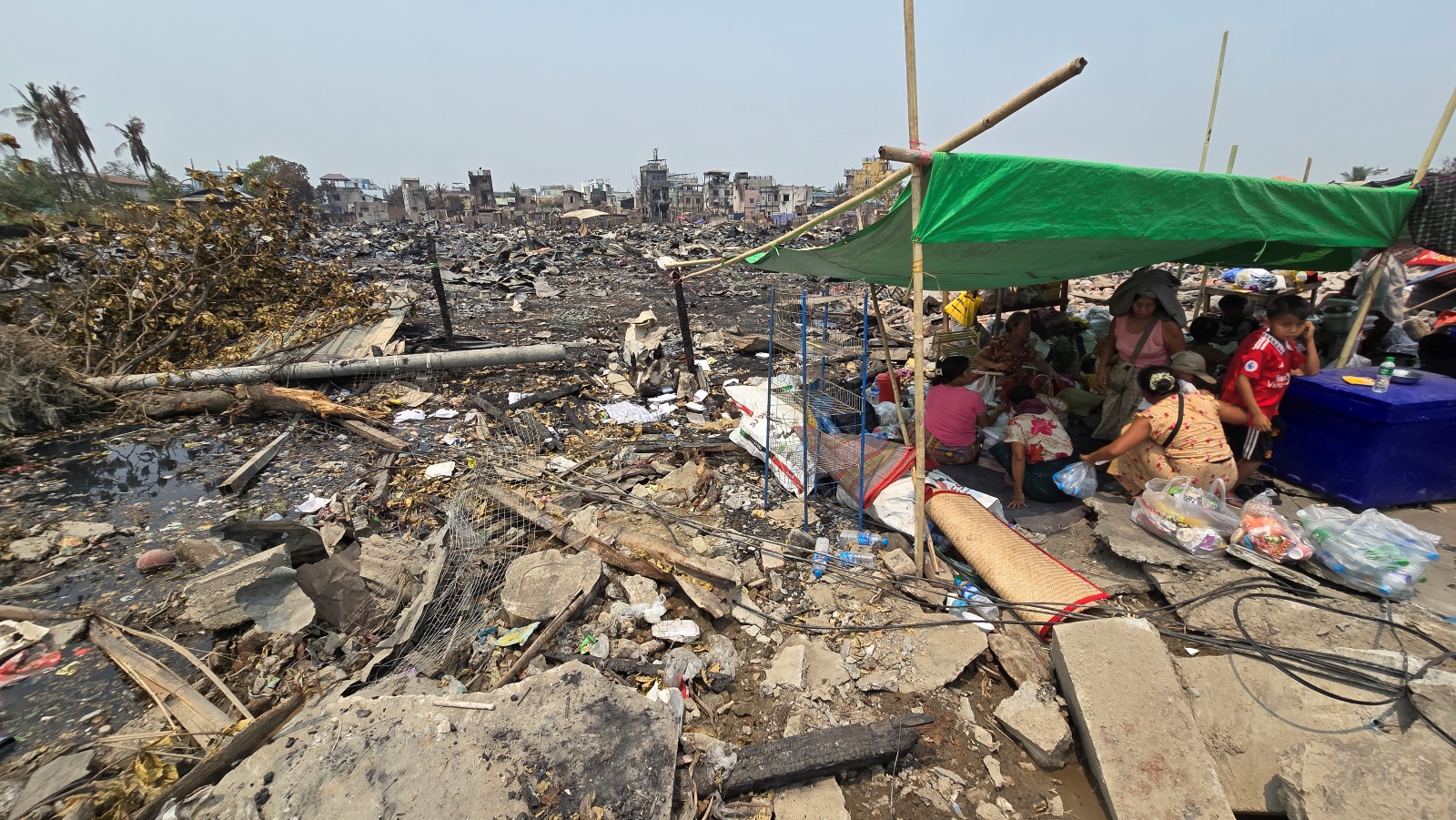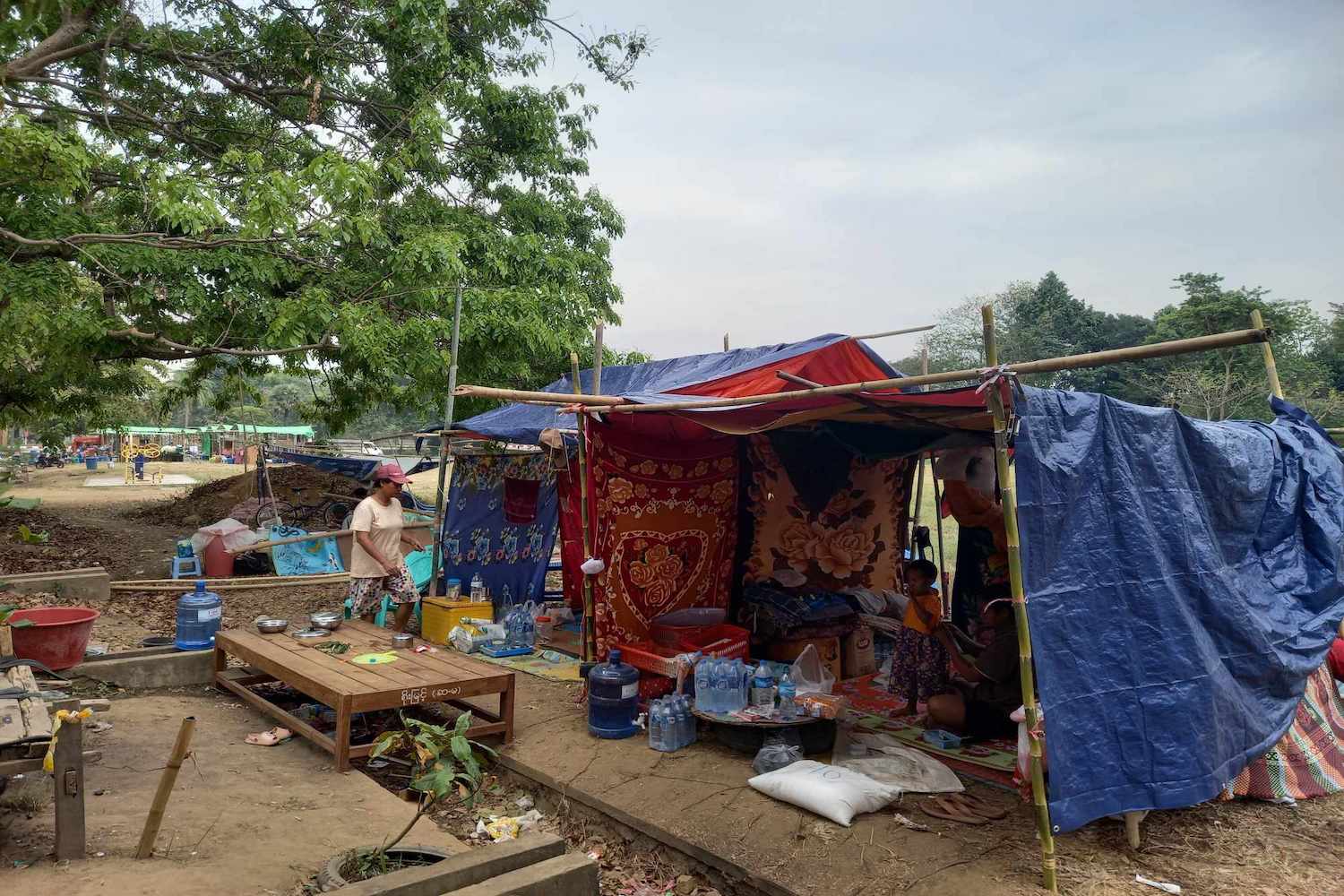A sweet deal awarded to a Chinese company during the military dictatorship is focusing more attention on production sharing contracts that lack transparency.
By KYAW LIN HTOON | FRONTIER
TRANSPARENCY is still lacking in contracts involving natural resources that were signed by foreign companies and the former military regime and which remain in need of being reviewed.
Civil society groups have been demanding transparency over these contracts since the transition to democracy began in 2011 and their stand has been bolstered by information that has recently emerged about the Tagaung Taung nickel mine and smelter in Sagaing Region’s Tigyaing Township.
The mine went into operation in 2009 under a production-sharing contract between the No. 3 Mining Enterprise of the Ministry of Mines and state-owned China Nonferrous Metal Mining Co. According to the CNMC website, the Tagaung Taung nickel mine contains 700,000 tonnes of nickel and the US$800 million project has an annual output of 85,000 tonnes of ferronickel.
A bad deal?
The Myanmar Alliance of Transparency and Accountability says the contract is controversial because it provides for the Myanmar government to receive only one percent of revenue, and the Chinese company 99 percent, when the price of nickel falls below US$15,000 a tonne.
Support more independent journalism like this. Sign up to be a Frontier member.
MATA says the ratio is adjusted to 50 percent each when the price of nickel is between $15,000 and $20,000 a tonne, but market sources say such a rise is unlikely in the near term. The average nickel price this year has been about $12,880 a tonne, according to Statista, a provider of market and consumer data based in Germany. At the London Metal Exchange on December 11, nickel was trading at about $13,530 a tonne.
“Among the production-sharing contracts [in Myanmar], this one can be described as the most controversial,” said U Thant Zin, an executive member of MATA. He is also a member of the Myanmar Extractive Industries Transparency Initiative’s Multi-Stakeholder Group, which comprises seven representatives each from the government and the private sector and nine civil society representatives.
As a stakeholder in Myanmar’s EITI process, MATA was able to obtain the PSC for the Tagaung Taung nickel mine, which it publicised to the media.
While many mining contracts in Myanmar have deficiencies, MATA said that the Tagaung Taung PSC was an outlier. Most mining contracts with foreign companies provide for revenue sharing arrangements of around 70:30 or 65:35 in favour of the overseas partner.
Thant Zin said he wondered about the circumstances under which such a “strange” contract was signed.
“The Tagaung Taung nickel mine’s PSC is quite unusual and weird,” said Thant Zin.
Members of the Sagaing Region Hluttaw’s Electrical Energy and Industrial Committee visited the mine in early December in an attempt to determine why it is still not profitable.
The operator of Tagaung Taung revealed it was losing money when the committee inquired about its corporate social responsibility spending. The company provided the committee with a balance sheet and its accounts, said Sagaing Region MP U Thein Han (National League for Democracy, Tigyaing-2), a committee member.
“The officials at the factory told us that the mine is still losing because the price of ferronickel has fallen on the world market, but judging from the way the mine is operating it is difficult to understand how it can be running at a loss,” Thein Han said.
Thein Han said he would expect that if the mine was losing money the operator would have scaled back production, but it seemed to be operating as normal when the committee visited.
“The government needs to check whether they are still really losing money or if the numbers they gave were wrong,” the lawmaker said.
Thein Han, who was born and raised in Tigyaing Township, is pleased that the area hosts such a large mining project. However, he is frustrated that the township and the nation were yet to receive what he termed the “proper benefits” from the mine’s operations.
The committee is drafting a report about the mine that will be submitted to the regional hluttaw later this month.
Neither CNMC nor the No. 1 Mining Enterprise, in which No. 3 Mining Enterprise has been merged since the contract was signed, responded to requests from Frontier for an interview.
A deputy permanent secretary from the Ministry of Natural Resources and Environmental Conservation who is named as a spokesperson for mining affairs was also approached and declined to comment.
tagaung_5.jpg
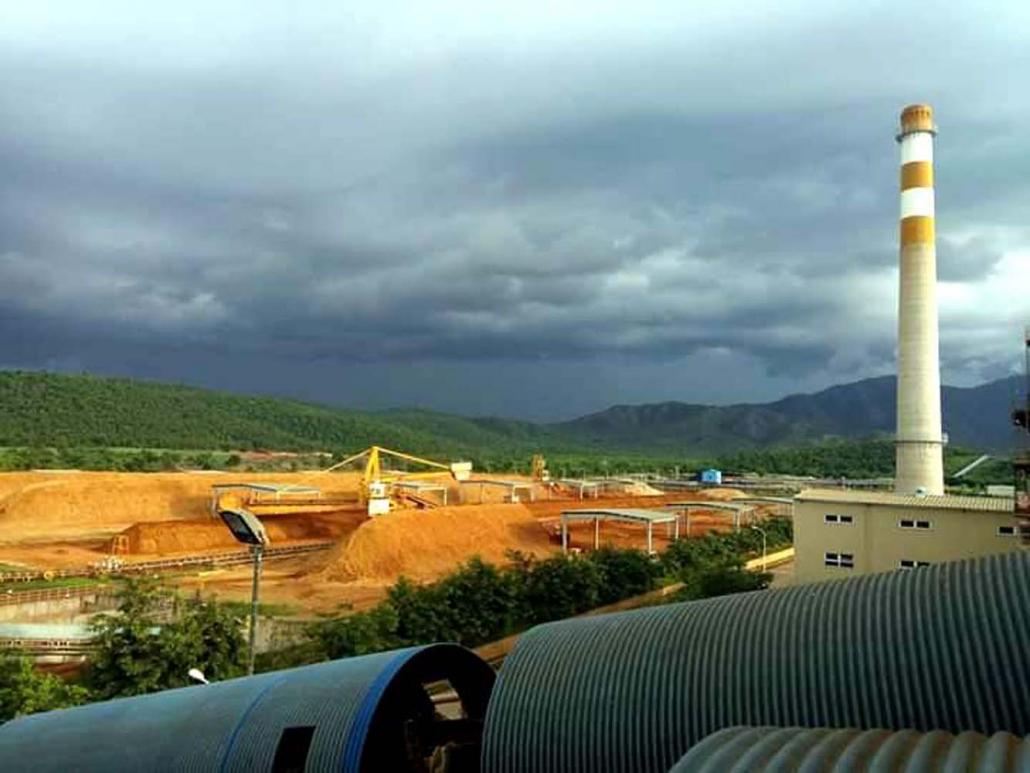
The mine went into operation in 2009 under a production-sharing contract between the No. 3 Mining Enterprise of the Ministry of Mines and state-owned China Nonferrous Metal Mining Co. (Supplied)
Secret contracts
A weakness in extractive industries transparency in Myanmar is that there is no obligation for companies to disclose production-sharing contracts. The only such contract involving a private investor that has been disclosed is the PSC signed by Total Myanmar Exploration and state-owned Myanma Oil and Gas Enterprise in 1992.
According to standards adopted in 2019 by the Extractive Industries Transparency Initiative, a global benchmark for transparency and accountability in the oil, gas and mining industries, implementing countries are required to disclose any contracts or licences that were granted, entered into or amended after January 1, 2021.
The Natural Resource Governance Institute, a non-profit group that promotes transparency and accountability in extractive industries, says Myanmar’s mining tax regime relies mainly on the collection of royalties and production sharing revenue from private sector companies.
An analysis by NRGI showed that the royalty and tax rates in Myanmar’s standard mining contracts were extremely high by international standards.
The analysis had resulted in a recommendation to the government to review and reform fiscal terms and adopt new model contracts, NRGI analyst U Ko Ko Lwin told Frontier.
The model contracts should also be published in Burmese and English, Ko Ko Lwin said, adding that the government needs to adhere to the terms of model contracts when negotiating actual contracts and disclose the outcome of the negotiations.
“These contracts are really important because we cannot replace our natural resources when they run out,” agreed Thant Zin.
NRGI’s arguments in support of more equitable sharing of earnings from natural resources are outlined in a report it published in 2016, “Sharing the Wealth: A Roadmap for Distributing Myanmar’s Natural Resource Revenues”.
The absence of transparency in contracts meant that the public “never knows what are the actual deals between companies and the government”, said Ko Ko Lwin.
Ko Ko Lwin said this had resulted in the minerals sector contributing little to state revenues. In the 2016-17 fiscal year, only 0.6 percent of government revenue originated from the minerals sector, not including jade and gemstones, he said.
“This means that the country has been losing a significant amount of revenue that could have been used to provide better social services,” Ko Ko Lwin said.
Labour disputes and missing CSR funds
As well as disquiet over its PSC, the Tagaung Taung nickel mine is also the focus of labour rights and environmental concerns.
Employees at the mine are facing a difficult situation because management is allegedly targeting union leaders for dismissal in an attempt at intimidation aimed at members of the basic labour union. A similar tactic has been used at other workplaces, particularly garment factories under Chinese management.
The head of the basic labour union at the mine, Ko Tin Myo Tun, said a former labour leader at the mine, Ko Tun Tun Win, was sacked in 2016 while trying to establish a basic labour union. The company had ignored a ruling issued by an arbitration body in 2018 that he be reinstated, Tin Myo Tun said.
He said the basic labour union had about 400 members but was unable to recruit more because workers feared they would be discriminated against by the company. Another grievance of the workers is that about 20 percent of the employees at the mine are Chinese citizens who are believed to earn up to 30 times the salaries of their Myanmar counterparts.
There is also dissatisfaction over the mine’s corporate social responsibility activities. Tin Myo Htun said China Nonferrous Metal Mining Company’s CSR spending lacked transparency.
“The company said it used about K200 million in its CSR activities, but we have discovered that the township General Administration Department took K6 million to build new toilets and buy a projector and the township Immigration Department took K4 million,” said Tin Myo Tun.
Thein Han, the Sagaing Region lawmaker, confirmed that some of the CSR funds were used by government departments. He also said that the Chinese company had spent only K120 million on CSR this year, when its contract with the government required it to spend $300,000 (about K453 million at current rates) on CSR activities every year.
“We want the company to use the full budget for CSR activities as it agreed,” he said. “It needs to be completely transparent about those activities and none of the CSR funds should go to government departments as it is supposed to benefit communities around the mine.”


